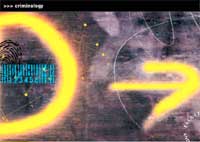|
||||||||||||||||||||||||||
| Criminology - CRIMA14760 | ||||||||||||||||||||||||||
This plan is only available to students commencing 2009 onwards
Criminology is an interdisciplinary field devoted to the study of crime, deviance, social control and the legal system. Over the past 50 years, criminology has evolved into a rich, broad-based discipline, no longer narrowly focused on crime and punishment. Contemporary criminological scholars investigate a broad range of topics including justice, conflict, risk, security, insurance, policing, governance and regulation. Criminology is shaped not only by scholars in law, philosophy, psychology and sociology, but also those in history, politics, economics, architecture, cultural studies, and other interdisciplinary fields. AIMS The major in Criminology aims to provide students with a critical and informed understanding of crime and justice issues in contemporary society. Using an interdisciplinary approach that integrates disciplinary knowledge from sociology, psychology, history, law and policy studies, the major provides a critical and theoretically informed understanding of crime and the justice system, criminal law and procedures, criminological research methods, as well as a range of current issues with respect to social control, juvenile justice, human rights, regulation, and penal policy. The program aims are in line with the overall program aims of the BA: • To develop an informed understanding of criminal offending, victimisation, criminalisation and crime control in contemporary society • To teach the conceptual tools and research methods associated with criminology, which draws on both social sciences and humanities. • To encourage the breadth of vision and critical thinking associated with interdisciplinary scholarship and research • To enable students to place contemporary Australian criminal justice in an historical and comparative context • To engage critically with fundamental questions about ethics, justice and human rights • To develop the skills of critical, creative and imaginative thinking about society and its institutions • To promote the techniques and value of reasoned and open-minded discussion and debate. A student who wishes to gain a major sequence in Criminology must complete 54 units of credit including 12 uoc at level 1, at least 18 uoc at level 2 and at least 18 uoc at level 3 including the capstone course.
Level 1
Level 2
Students must complete two core courses: And at least one of the following Criminology electives:
The following courses from other subject areas can also be counted towards the Criminology Major:
Level 3
Level 3 courses provide further specialisation and opportunities for self-directed learning and independent research. Courses examine methodological, ethical and legal issues in relation to criminological research, advanced studies in criminological theory, and key issues and debates concerning topics such as juvenile justice, comparative criminal justice, transnational crime and human rights, crime prevention policy and current issues in criminal justice. |
||||||||||||||||||||||||||



